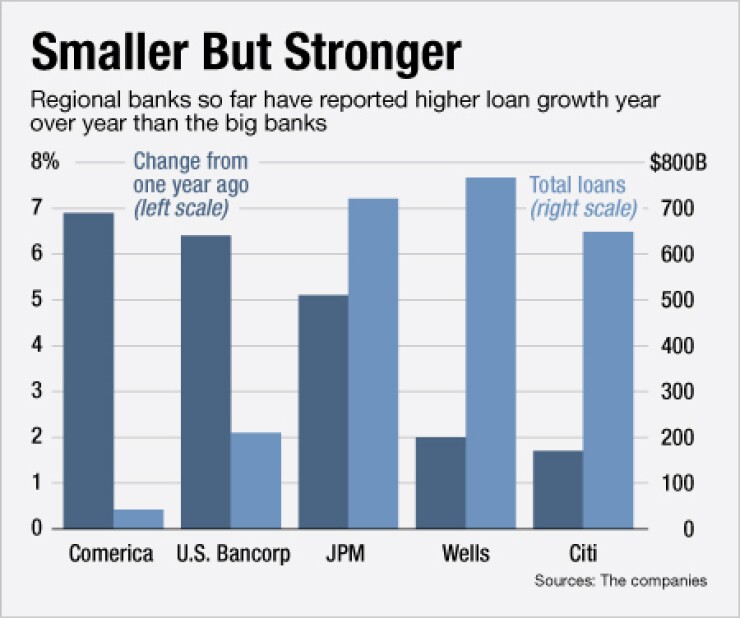-
U.S. Bancorp's (USB) first-quarter profit rose 28% as the lender sharply reduced its credit costs and turned in better-than-expected revenue growth.
April 17 -
Click on individual bank names in the table below to access American Banker's coverage of each company's earnings report. Links to relevant coverage, filings, releases, and bank benchmark profile data can be found in the Related Links area of each article.
April 24

As Richard K. Davis sees it, the biggest remaining regulatory costs might be bottles of Tylenol for the compliance team.
Though
"I don't think there is a hidden trap door of any significance that we can't at least predict or work within as the next couple of years go forward," Davis said.
"As it relates to the financial impacts … substantially most of that has already been seen by those other activities of Reg E and
He was responding, during a conference call, to analysts' questions about what kind of additional regulation he and his colleagues anticipate. U.S. Bancorp, with $340 billion of assets, on Tuesday
Davis said he does not expect major changes from the Consumer Financial Protection Bureau.
"They haven't done anything … yet to pick an argument with, and we will watch and see how they perform," Davis said. If the agency sticks to its "original true goal of being transparent, clear and helping customers understand what they bought, we are going to be in great shape there."
That, of course, could change. And if it does, the company will find a way to handle the problem.
"If they get into things like price-fixing and things like that, then we will deal with that when we face it, and it will affect everybody and as usual probably affect us less," Davis said. "For now, I think we're, as a management team, keeping our eye on so many things, but not sitting here worrying about the peril that it will create for the investment that you guys have in our company. And if it's a deal, we will manage it like we have before and we will find an offset."
U.S. Bancorp has built its young capital markets division with the pending Volcker Rule's limits on proprietary trading and some investments in mind, Davis said.
Davis has said frequently that the company is
Andrew Cecere, the chief financial officer, said on the call that the most important regulatory unknown is the leverage coverage ratio guidance from Basel III.
"We have built a lot of liquidity on the balance sheet and whatever those final ratios are will guide us to whatever we finalize from the securities portfolio, but that would be the only other one I could think of," Cecere said.





